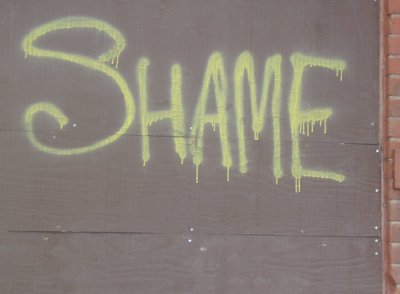When Do Bad Habits Become Addictions?

By: Adam Tiner
by Andrea M. Darcy
Have a sneaky feeling that one of your bad habits might be getting out of control?
It’s worth learning the difference between habit and addiction.
But it’s not addictive
Isn’t it?
Just because your behaviour is not a typical addiction like alcohol, drugs, or gambling, or because everyone else around you uses the same behaviour without problem? Does not mean it doesn’t have the capacity to be an addiction for you personally.
The NHS defines addiction as “not having control over doing, taking or using something to the point where it could be harmful to you.”
Things like sex, work, shopping, reading romance novels, and playing video games are things many of us do. For some, they are harmless distractions. For others, serious addictions.
Questions to ask about your bad habits
What questions can help you know if you have a habit or addiction?
1.When do you do the behaviour?
Bad habits can be things we do when bored to pass the time, or when worried or anxious. We nibble our nails as we watch TV, surf the internet when we should be working.
But if you tend to always use a certain behaviour when you are really upset – angry, sad, feeling useless? Then it’s more likely to be an addiction.
Addiction is connected to escaping difficult thoughts, memories, and emotions, called ’emotion focused coping’ in psychology (more on that below).
A 2017 study on internet addiction explains that, “When internet activities are used excessively to cope with negative affective states (e.g., depression or anxiety), and alternate means of coping responses are diminished (e.g., social support, health promoting behaviour), individuals may find themselves relying on online activities to avoid negative feelings, possibly leading to internet addiction.”
2. How do you feel when you do the behaviour?

By: Marco
Do you like to say you are ‘addicted to shopping’ because you love the buzz of a good find, and just clothes and shoes in general? It’s likely more of a habit.
But if you feel numbed out when you go on a shopping binge, as if your thoughts are all turned off and you are on a strange sort of automatic? You might be addicted. You are using the activity like a drug.
3. How do you feel after the behaviour?
Do you even notice when you stop your behaviour and move on to something else? If not, likely just a habit. Or if you are a little annoyed you’ve ‘gone and done it again’, then likely a habit.
Do you feel oddly guilty? Hide evidence of your habit? Cram the junk food wrappers to the bottom of the bin, hide your credit card statements from your partner?
At the root of addiction is a feeling of shame. An interesting take on addiction by philosopher Owen Flanagan published in the journal Frontiers in Psychiatry is that this shame is not necessarily a bad thing. “Feeling shame for addiction is not a mistake,” he claims.”It is part of the shape of addiction, part of the normal phenomenology of addiction, and often a source of motivation for the addict to heal.”
4. Do your friends and family know about this habit?

By: Anthony Easton
Because addiction breeds so much shame, we do our best to hide it from ourselves with excuses (“it’s not a big deal, everyone does it, I am way too smart to have an addiction”).
And we especially hide the behaviour from others, like friends and family.
5. Do you find you constantly reassure yourself that it’s ‘under control’?
Habits are annoying, and we can wish we’d stop. But we don’t have a battle of ‘control‘ with them.
Control is the domain of addiction. We are in a battle with the behaviour because deep down we know we are out of control.
For example, a few times a month we have a cheeky cigarette after a drink and then really wish we didn’t — habit. But if we smoke every night (despite telling our friends and family we’ve quit) and then tell ourselves we will stop really soon and ‘get it under control’? Addiction.
6. Do you put things at risk to do this behaviour?
Do you blow your budget to indulge in the behaviour? Risk your health? Risk your capacity to show up at work the next day? And lie to those you love, or take out your feelings of shame on guilt on them?
Addictions affect our daily lives negatively. If your behaviour is becoming harder to hide and is putting important things like your finances, job, or relationships at risk, it’s likely an addiction.
7. How often do you think about this behaviour?
When you are not doing the behaviour, is it on your mind? Are you planning the next time you will do the behaviour? Do thoughts of the behaviour engage you so much that you can’t focus on the present moment? To the extent you even make mistakes? You are dealing with addiction.
We don’t think about habits too much when we are not doing them. We might spend some time after we do them berating ourselves, but then we get on with our lives.
Trauma, difficult childhoods, and addiction
If you experienced childhood trauma or adverse childhood experiences (ACEs), and have not sought support to process such experiences? You are far more likely to develop addictions.
In America, the National Survey of Adolescents reports teens with physical or sexual assault or trauma in their past are are three times more likely to also have past or current substance abuse issues than those without a traumatic past.
Trauma and difficult experiences cause psychological stress. And this brings us again to ’emotion focused coping’.
Research published in Procedia, the Journal of Social and Behavioural Sciences, looked at stress coping strategies of drug and alcohol addicted patients. It points out that, “It is possible, when faced with stressors, individuals with deficit of adaptive coping methods or problem-focused strategies are more likely to engage in alcohol use, to cope with negative emotion”.
This seemed the case in a study on coping and psychological stress in men with substance disorders , which showed that recovered addicts who used ’emotion orientated coping’ over ‘task orientated coping’ were more likely to suffer anxiety and depression and have a relapse.
Emotion-orientated coping involves trying to distract yourself from the way you feel. Task orientated coping is action-orientated. This can include things like reaching out for support when you feel upset.
Time to talk to a professional about your behaviours? We connect you to top addiction counsellors and therapists in central London. Or find a UK-wide registered therapist on our booking site, along with video counsellors.
Comments are closed on this piece. See what others said below.

Andrea M. Darcy is a mental health and wellbeing expert and personal development teacher with training in person-centred counselling and coaching, as well as a popular psychology writer. Follow her on Instagram for useful life tips @am_darcy




